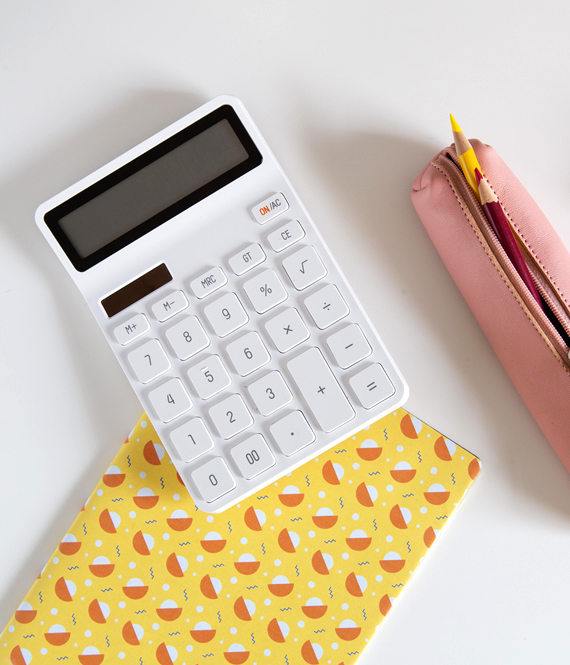
5 Gentle Ways to Get Rid of Phone Anxiety
We recommend helpful products in our articles. Read our full disclosure here. The content on this website is not intended to be a substitute for professional advice, diagnosis, or treatment.

Despite everyone being glued to their phones at all times, it seems as though people are experiencing more phone anxiety (or phone call anxiety) than ever before.
Of course, this doesn’t come as too much of a surprise with the dawn of the internet.
Nowadays, we can do just about anything with a few taps (and zero human interaction), from making money to getting groceries. Millennials particularly have a difficult time with this as more than half have reported feeling anxious when engaging in a phone call.
What are some symptoms of phone anxiety?
Whether you’re the recipient of a phone call or you need to dial up someone else, you may begin experiencing sweating, increased blood pressure and heart rate, feelings of dread, stress, and more.
It’s a perfectly normal experience, especially as technology makes completing basic tasks even less interactive.
While you may prefer texting or email, the fact of the matter is that you can’t avoid talking on the phone forever.
And, you might want to start addressing your phone anxiety now, given the increase in remote work opportunities – here are some tips that can help put you in the right direction.
How to Get Rid of Phone Anxiety
1. Create a script for yourself
Even those who are most comfortable talking on the phone occasionally need to rely on a sticky note or two.
One of the fears that people with phone anxiety experience is potentially blanking on what you were looking to discuss, or they may second-guess themselves before using a greeting.
Should you say “hello,” “hey,” or something entirely different?
These are common phone anxiety predicaments.
Sometimes, writing out the first few sentences that you know you’d like to say can help lead you into the call.
Take a deep breath, lay out what you’d like to say, and dial that number!
2. Get up, move around
Sometimes, you may find yourself in a situation where you don’t have time to implement such thorough preparations.
Or maybe you did get to prepare, but you still find yourself freezing up due to your phone anxiety as soon as the call starts.
Don’t panic – get up and move your body!
One of the reasons people develop phone anxiety is due to the fear of how the person on the other end is reacting.
If you are doing something to “humanize” the conversation, such as standing up, making physical gestures, and smiling, you may end up feeling less nervous. (Some studies have proven that the physical act of smiling can reduce stress and improve your mood.)
Plus, you’re expending more energy, which is a common technique that performers use before they get on stage to ease their nerves.
3. Practice out loud
Have you ever prepared for a job interview or a presentation by practicing out loud in front of the mirror?
Perhaps you’ve simply practiced in the car during your commute.
Whatever the situation was, chances are that you’ve verbally rehearsed something before.
It’s no different than an actor rehearsing for a movie or a politician preparing a speech – talking on the phone, especially when you’re prone to phone anxiety is a skill that needs to be nurtured.
You can start small, such as opting to order your favorite pizza on the phone instead of through an app.
You can also take ten or fifteen minutes every day and practice general phone jargon, such as salutations and questions.
Everyone tends to develop their go-to phone phrases over time, so don’t be afraid to take a few minutes every day to find your natural flow.
Eventually, you’ll notice that these simple things you learn actually help your phone anxiety to be more gentle.

4. To minimize phone anxiety, try to listen more intently
Instead of focusing on what you might do to “screw up” the phone call, focus your attention on what the other person is saying.
People with phone anxiety often get so nervous that they completely miss what the other person said, thus defeating the purpose of the call in the first place.
Shift your focus away from what could go wrong.
Remember, the person on the other end is also human.
While being a better listener may ease some of your phone anxiety, it’s also simply the polite thing to do.
5. Don’t be afraid to ask questions
It’s perfectly acceptable to ask someone to repeat themselves or to recite back something that they said.
People appreciate it when you express genuine interest in what they have to say.
That’s not to say that you need to be wholeheartedly into every phone call you conduct, but asking questions can help you feel more confident.
Don’t worry about sounding “dumb” – from a professional standpoint, if questions aren’t asked, it’s usually a red flag that the other person wasn’t paying attention or doesn’t care.
So go ahead – ask them to repeat that number one more time.
More often than not, it’s respected!
While eliminating phone anxiety entirely is not likely, you can work to cope with your feelings by following these simple tips.
Just remember that everyone gets phone anxiety once in a while.
It’s perfectly normal, and just like anything that may make you nervous at first, you’ll get better with time and practice.
What are you waiting for?
Go call your mom and start sharpening your skills!
Like these tips?
Scroll down for more.
"We love to research problems, examine studies, analyze solutions, and share with you ideas that make life healthier. You can learn about us and our editorial standards here. Have suggestions or feedback to share? Send us a message!."













Leave a Comment